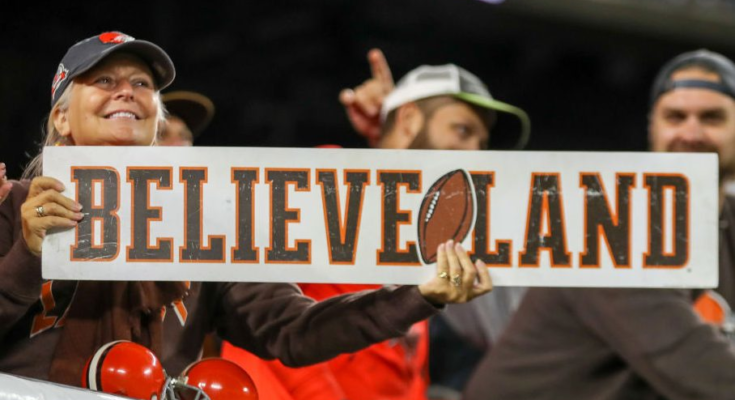Tomato, tomahto. Tanking, rebuilding.
It’s a distinction without a real difference. The NFL nevertheless tried, in its assessment of the investigation of the allegations made by former Browns coach Hue Jackson, to find that the team did not try to lose. The NFL did not specifically address, however, whether the Browns were actually trying to win when implementing what the franchise dubbed a “4-year plan.”
PFT has obtained a copy of the letter sent by Commissioner Roger Goodell to Browns owner Jimmy Haslam regarding the decision that Jackson’s claims could not be substantiated.
In the letter, dated May 2, Goodell writes that the investigation “found no evidence that the Browns ‘tanked’ in the 2016-17 seasons, or that the Four-Year Plan incentivized losses.”
Goodell explains that the “Four-Year Plan” was adopted after the Browns had finished last in the AFC North in seven of the previous eight seasons and had won more than five games only once during that same period.
“There was a general recognition that the team was not competitive and that a significant and multi-year rebuilding program was necessary for the Browns to compete in a division that included some strong rivals like the Baltimore Ravens and Pittsburgh Steelers,” Goodell writes. “The Plan was initially developed by executives in the football department; Coach Jackson himself reviewed the plan and suggested changes to the Plan’s incentive compensation metrics, which were accepted. Coach Jackson thereafter agreed to all of the Plan’s metrics for the 2016-2019 seasons.”
Goodell then explains that the investigation found no proof that the Browns “tanked” any game in 2016 or 2017, and that no one “in ownership, the football department, or coaching staff encouraged losses or discouraged winning to improve the club’s draft position.” He adds that the investigation did not find evidence that anyone with the Browns “made decisions deliberately to weaken the team to secure a more favorable draft position.” Goodell notes that the club placed more of an emphasis on the overall number of picks than on a particular draft position.
Goodell alternatively could have concluded, if he had so chosen, that the “Four-year plan” reveals numerous factors that definitely did not incentivize winning. As noted in the formula obtained by SI.com, the last two years of the plan included incentives based on winning. The first two most definitely did not.
Moreover, the notion that the plan didn’t seek to improve draft position but prioritized overall picks ignores the obvious connection between the two. The higher a team drafts in a given round, the more easily those picks can be flipped for more selections. Thus, the tanking incentive, while not express, is absolutely implied.
The fair takeaway from the league’s finding is simple. While evidence of efforts to lose specific games will result in serious problems, a broader, long-term effort to build a better team in the future by not valuing factors that lead directly to winning now will be respected — as long as the formula and language is sufficiently convoluted and complicated to never directly suggest that the team tried to lose any given game. If the team is generally not trying to win every given game, the folks at 345 Park Avenue will say that’s fine and dandy.
Unless, of course, they decide in any given case that they want to conclude otherwise. If we’ve learned nothing else over the years, we’ve learned that the league does whatever it wants to do, and that it massages the facts and their interpretation to fit the preferred outcome in any/every given case.



